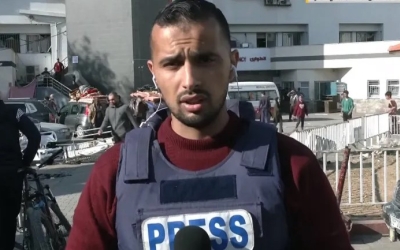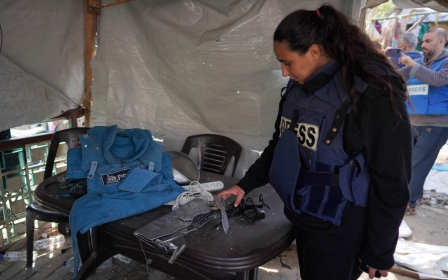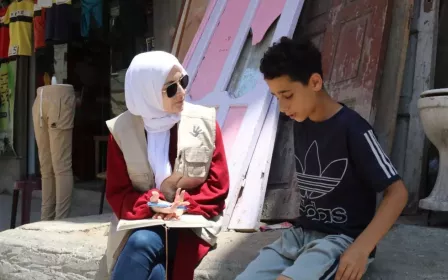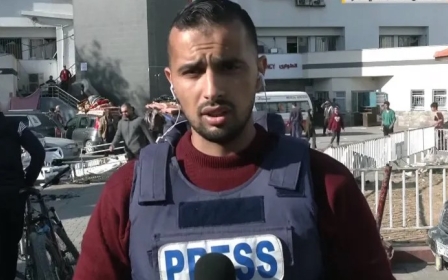Over 100 journalists sign letter demanding US impose arms embargo on Israel
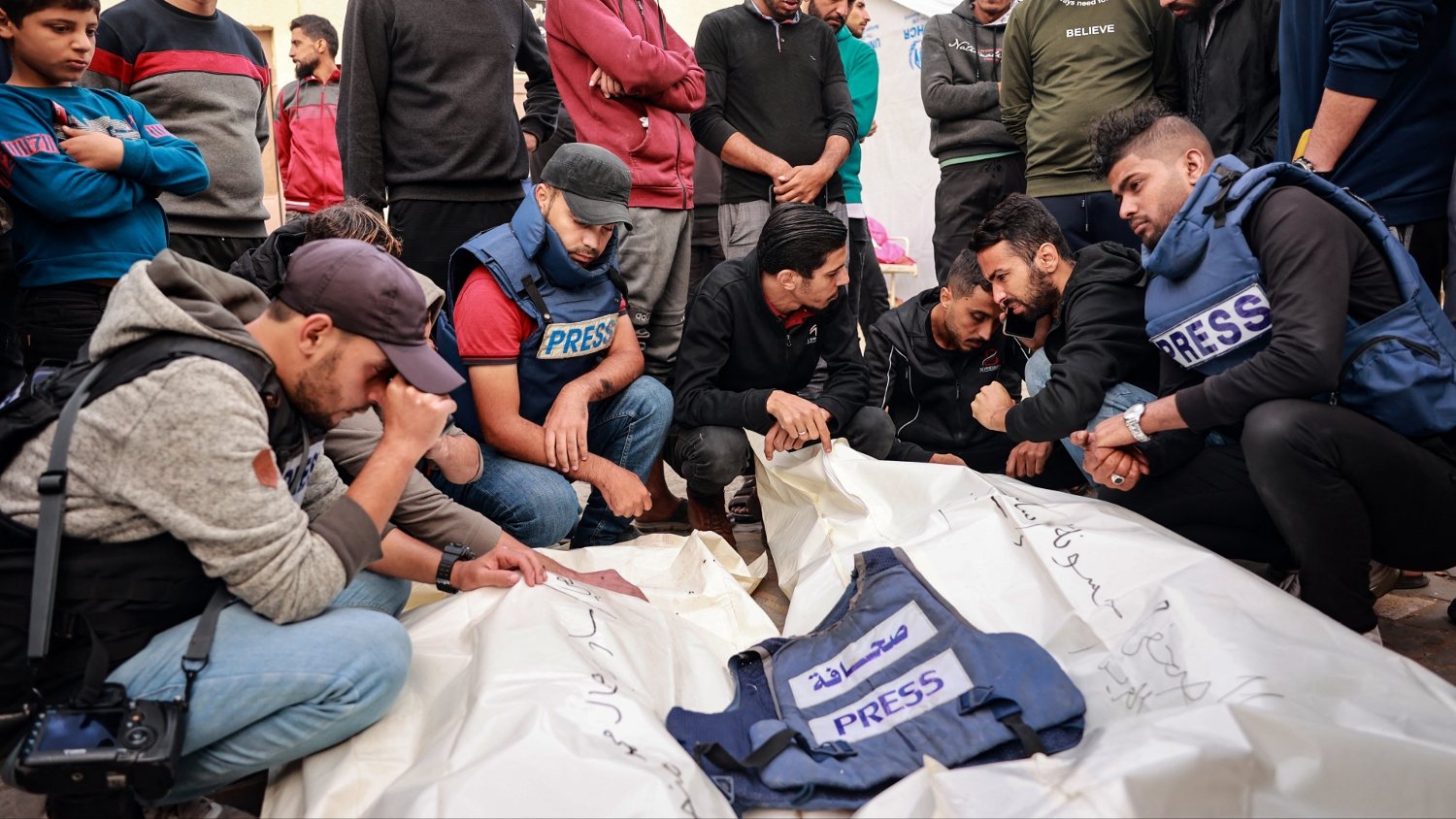
A group of more than 100 journalists have signed a letter addressed to US Secretary of State Antony Blinken calling on the Biden administration to impose a ban on weapons transfers to Israel over its killing of Palestinian journalists in Gaza.
The letter comes just over a week after Israel's military killed Al Jazeera correspondent Ismail al-Ghoul and his camera operator Rami al-Rifi after striking their car with a missile.
Since Israel began its war on Gaza last October, Israeli forces have killed more than 160 Palestinian journalists working out of the besieged enclave.
"As journalists, publications and press freedom groups in solidarity with the courageous Palestinian journalists of Gaza, we call on you to do more to protect journalists and show unwavering support for free and independent media by supporting an arms embargo against Israel," the letter said.
"Israel’s deliberate targeting of journalists follows a longstanding pattern by the Israeli government to suppress truthful reporting on its treatment of Palestinians and its war in Gaza. By providing Israel with the weapons used to kill journalists, the State Department is abetting Israel’s violent suppression of journalism."
New MEE newsletter: Jerusalem Dispatch
Sign up to get the latest insights and analysis on Israel-Palestine, alongside Turkey Unpacked and other MEE newsletters
The letter was signed by 113 journalists, seven press freedom organisations, and 20 news outlets.
MEE reached out to the State Department for comment on the letter but didn't receive a response by the time of publication.
Israel's war on Gaza began last October following the Hamas-led attacks that killed 1,200 people in southern Israel and saw over 200 people taken as captives back to Gaza.
Israel responded with full force, launching a devastating and indiscriminate aerial bombardment campaign followed by a ground invasion of Gaza. So far, Israeli forces have killed more than 40,000 Palestinians, half of whom are women and children, according to the Palestinian health ministry.
In addition to the targeting of journalists, Israel has also killed healthcare workers, employees with the UN Palestinian refugee agency, and foreign aid workers.
The letter also points to the other ways in which Israel has suppressed coverage of its war on Gaza, including occasional internet outages, barring foreign reporters from Gaza, and the raid of Al Jazeera's office in East Jerusalem.
"Israel’s deliberate targeting of journalists follows a longstanding pattern by the Israeli government to suppress truthful reporting on its treatment of Palestinians and its war in Gaza," the letter said.
There have been several efforts since the start of the war on Gaza to highlight the lack of coverage and attention paid to the killing of Gaza's journalists.
In April, more than two dozen Palestinian journalists working inside and outside of Gaza published a letter calling on American journalists to boycott the annual White House correspondents' dinner.
A group called Writers Against the War on Gaza was also formed as an effort to express solidarity with Palestinians and to bring attention to a number of issues, from pro-Israel media bias to the "present reality in Palestine, but also about the history of Palestinian life, struggle, and resistance".
Middle East Eye delivers independent and unrivalled coverage and analysis of the Middle East, North Africa and beyond. To learn more about republishing this content and the associated fees, please fill out this form. More about MEE can be found here.


